Ghassan Zaqtan writes with a measured tranquility, whether wistfully recalling a bygone romance or recording the traumas faced by Palestinians. The abuses can be gut-wrenching, but his evocations of them are not intended to shock or to incite. He is merely bearing witness.
An Old Carriage With Curtains, a novella by Ghassan Zaqtan
Translated from the Arabic by Samuel Wilder
Seagull Books 2023
ISBN 9781803092348
Cory Oldweiler
As atrocities of the past are once again being invoked to justify atrocities in the present, the specter of history’s attendant comforts may be unwelcome territory to many readers. Yet as Hala Alyan cautions in her poetry collection The Twenty-Ninth Year, “The worst ghosts are the ones that don’t come back.” If being haunted by the past is perhaps inescapable, being freighted with forgetting is even worse; being unable to reflect, to revisit, or to remember, that is the real curse. By this heuristic, the fiction of Palestinian poet and author Ghassan Zaqtan, compelled as it is by a multitude of spirits, is truly blessed. Though he is approaching his 70th birthday, Zaqtan’s writing teems with the ghosts of his childhood and youth, uncertain and often perilous times when he and his family were repeatedly forced to relocate, but years that also clearly held a balm of adolescent love and friendship that has lingered long past the point those physical bonds were frayed or torn asunder.
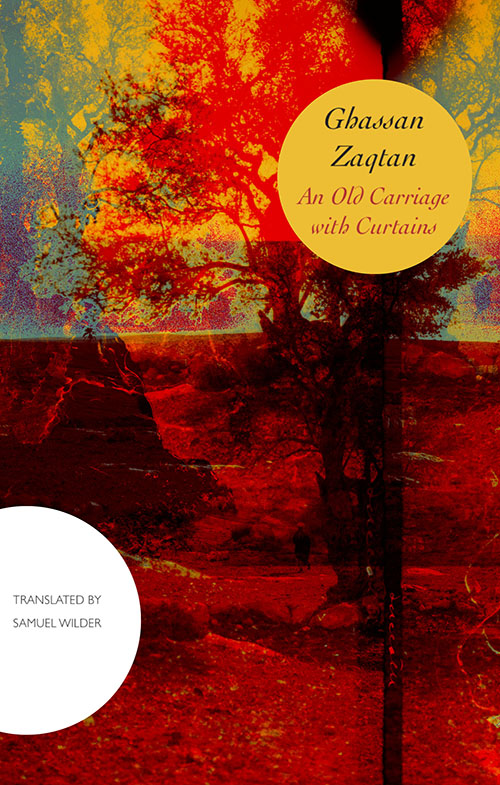
Zaqtan was born in 1954 in the Bethlehem suburb of Beit Jala, where his parents settled after fleeing the village of Zakariyya, some 25 miles southwest of Jerusalem, during the Nakba. In 1961, the intransigence of local religious leaders, who objected to his headmaster father’s insistence on educating girls, drove the family further east, beyond the River Jordan to the Karameh refugee camp. Again their stay was short lived, however, as seven years later, Israeli forces razed the camp during the War of Attrition. For the next quarter century, Zaqtan moved around the region, living in Jordan, Lebanon, Syria, and Tunisia, before returning to Ramallah in 1994, where he has remained.
While his poetry has been celebrated in the West, sharing the International Griffin Poetry Prize in 2013 with his longtime poetry translator Fady Joudah, Zaqtan’s prose is lamentably unremarked upon in the English-speaking world. Over the past seven years, Seagull Books has released three of Zaqtan’s novellas as part of their Arab List series, all three translated by Samuel Wilder with a consistent ear toward the lyricism inherent in Zaqtan’s thoughtful poetic prose. Each book is easily read in a single sitting, but the images and set pieces within them will resonate much longer. For readers who have never encountered these events from a Palestinian perspective, Zaqtan’s fiction is incredibly accessible because it is neither didactic nor does it rely overly on specifics. An unfamiliar term or event may spark further investigation, but the stories themselves are not dependent on these intricacies nor do they hide behind historical trivia. Zaqtan consistently writes with a measured tranquility, whether wistfully recalling a bygone romance or almost pragmatically recording the traumas faced by Palestinians dating back to the first World War. The abuses can be gut-wrenching, but his evocations of them are not intended to shock or to incite. He is merely bearing witness.
His latest English-language work, An Old Carriage with Curtains, is a poignant piece of autofiction originally published in Arabic in 2011. It addresses the constricted past and present of Palestinian life in Area C of the West Bank, with its omnipresent permits and checkpoints, through storylines that channel the ghosts of Zaqtan’s family, friends, and lovers, acknowledged at the beginning of the novel as the narrator is walking in the “valley of the shadow of death,” in the wadi on the road between Jerusalem and Jericho. “They all walked beside him, the dead and the living, in a caravan in which no one dies, in a caravan that never arrives.” The new work is also deeply invested in fundamental questions of narrative, such as the mutability of memory, and how these voices from the past shape the story Zaqtan is writing and those he has previously written, especially his 2015 novella Where the Bird Disappeared, published in Wilder’s translation in 2018, which contains several storylines that are also present in Old Carriage.
The first of Zaqtan’s prose works to appear in English was 1995’s Describing the Past, published in Wilder’s translation in 2016. Much of Zaqtan’s writing has an eavesdropping quality to it, as if he is spying on his memories, a trait that is never more present than in this slim, gently dreamlike volume. The story is set, per a foreword from Joudah, in the valley surrounding the Karameh camp, though the location is never specified in the text. Neither are the identities of the novel’s trio of narrators — I, he, and she. “I” is nicknamed the Christian, because of his mother’s religion, though his father is Muslim. The character “he” is referred to as the Iraqi’s son, because his uncle talks endlessly about guiding the Iraqi army in 1948. “She,” only ever she, is initially married to a much older man, referred to as the Hadj, who provides for her and her mother. The Christian sneaks into their garden and watches the young woman while she sleeps, then tells his friend the Iraqi’s son about her, and soon he too comes to watch. Both young men fall in love, but after the Hadj dies, it is the Iraqi’s son who has a child with her.
In addition to somnolent images of watching the woman sleep and of nighttime trysts in the garden, Describing the Past is the most overtly lyric of Zaqtan’s three English-language works, its abundant olfactory imagery adding to the feel of almost floating past these scenes: the “scent of wet mud and ground shadows,” the “scent of guava, orange and mint fanned from the river,” the “penetrating scent” of a row of basil bushes, “the scent of soap when she passed by me,” “her scent, a taut body washed with olive soap,” and the “oil scent” from the bicycle renter’s hair and face.
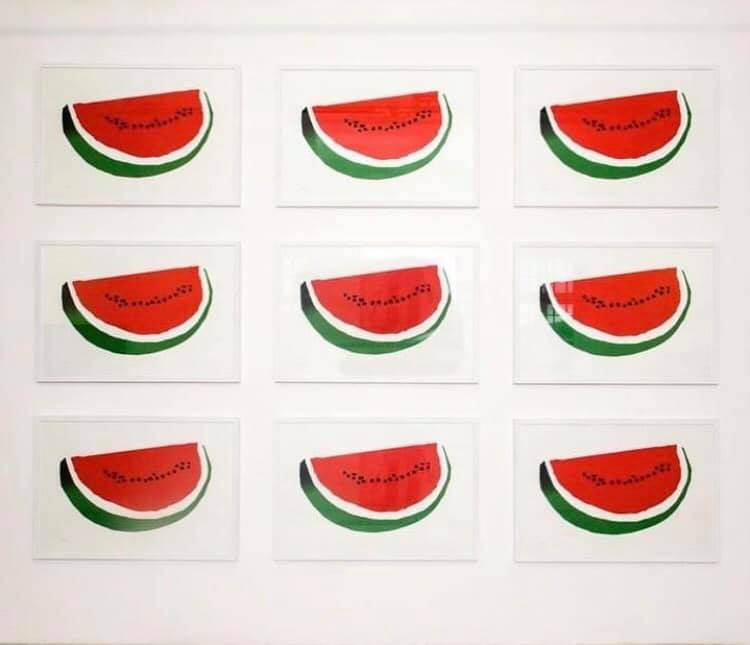
All of Zaqtan’s writing is concerned with the idea of returning, if not the idea of return, stated here straight off the bat in the novella’s second sentence — “I had to return.” In this case, the return is both physical, to see her after the Iraqi’s son has drowned, and metaphorical, to revisit the memories that make his “hemmed-in and blockaded life […] bearable and believable.” Though the Christian’s love remains unrequited, his memory of watching her sleep sustains and obsesses him over the years, providing “everything I needed, what I think about, what I cannot stop thinking about.” This freedom through memory is fundamental to Zaqtan, for whom place and time are as critical to recall as lost friends and lost lives because, as the Christian says, “Things evaporate and die if they don’t find someone to remember them.”
Describing the Past focuses on the deaths of the woman’s mother, husband, and lover, but also acknowledges the specter of death that hangs over the refugee camp as a whole. The most haunting memory is the woman’s story of her father, who was killed in 1948 by the Haganah after being forced, along with five other men, to dig his own grave; a seventh man was left alive to pass on the story. “There were so many murdered, everywhere, in 1948,” the young woman recalls, “Men, women, children, whole villages with names and traits and memories — they ended and died.” In fact, while the Christian is visiting this ghost town (whether in person or in his mind is difficult to discern), he sees these spirits all around him: “At the thresholds of houses, on the low walls, on irrigation works and pools, the dead sat quietly, smiling under the weight of their dust and staring as my small demonstration passed by.”
The interrelationship between I, he, and she is mirrored in Where the Bird Disappeared by the characters of Zakariyya, Yahya, and Sara. Again the two men are friends, and both have feelings for Sara. The story opens in the village of Zakariyya as almost an idyl of youth, with the three meeting and exploring their love of discovery — intellectual, sexual, historical, religious — often along with other young men, including Yunis, Yasin, and Idris. Yahya has a “touch of sacredness” about him, feels called or guided, much like his namesake John the Baptist, who was the son of another Zakariyya. (As much as I could determine, every male character shares their name with an Islamic prophet, and I would guess that perhaps the story contains many correlations that someone more familiar with the Koran would recognize.) Quite suddenly these youthful activities come to an end as “armed Jewish forces” began shelling and invading the village, which is subsequently “migrated.”
Yunis doesn’t end up in a whale, but in a cave, where he is called upon to lead the gathering ranks of women and children in prayer as “ghosts started to rise and arrange in ranks behind him in silence.” Yasin has disappeared and Yahya and Zakariyya decide to go back to the village in search of him. During this time, Yahya is caught by Jewish troops and, after three days and nights of torture, shares the fate of his namesake by being beheaded. Again Zaqtan turns to the olfactory senses, by noting that Yahya’s screams are so powerful and all-consuming that they prevent Zakariyya, secreted near by, from noticing the stench of another man crammed into his narrow hiding space.
Zakariyya wanders alone and silent before ending up in a refugee camp in Arrub, where he receives a “blue identity card which claimed his existence to a world that did not see him or know him.” He thinks, “like the others,” that the migration is “temporary,” though the displacement is given physical force: the Nakba “had taken him too far,” “had heaved him,” “had shoved him, without mercy.” He spies Sara, for whom Yahya’s death has become another aspect of “her enduring grief, her life that became a deep fissure of bad fortune,” but is unable to bring himself to talk to her.
Like the Christian in Describing the Past, Zakariyya returns to his former village, now called Kffar Zakariyya. He is in his 80s and exchanges stories with a Jewish man from Casablanca who “was past anger, satisfaction, curiosity, fear and regret. He had arrived where nothing happens.” One question Zakariyya asks the man is the location of Yahya’s grave, leading to a chillingly banal image of the erasure of time and the casual minimization of Palestinian death.
A very similar scene recurs early in An Old Carriage with Curtains, when the narrator, newly arrived back in Zakariyya, asks an “old Jewish man, whom he guessed was Iraqi or Moroccan,” about the “Salihi Tomb, where the Muslims had buried the dead from the Battle of Ajnadayn.” It’s a brief encounter, but serves to tie the narrator to the pages of Zaqtan’s earlier fiction, which is intriguing because it also becomes clear that the narrator is a third person stand-in for Zaqtan himself. He explains that Zakariyya is “where his father and mother were born.” And later on, he says that Beit Jala “was where he was born and spent his earliest years.” It is likely that there are more such biographical correlations between author and narrator, but the novel’s main concern is not one of degree but of mechanics — how we access stories whose voices have been lost and how memory and fiction intertwine. An early indication of this focus comes when the narrator reveals that the village of Zakariyya carries the burden of both history and artistic license. “It could barely exist under the pressure of the cruel importance placed on it, the dependence of all those contradictory memories, and the longing that pervaded all their stories.”
The “they” here specifically refers to the narrator’s family. His father and uncle have died, and with them their ability to relate their remembrances “with a speaker’s present consciousness.” His mother is still alive, and she and her memories figure prominently in the novel. The narrator is trying to secure her a visitation permit from Amman, where she lives, so she can return to Zakariyya one last time. As she anticipates her impending journey, previously unuttered memories start to impinge on her familiar stories, starting with a railway station in Artouf, which had been visible from Zakariyya before it was destroyed. “This was the first time that the train station entered her stories, to which it became like a secret key.” It is especially key to readers of Where the Bird Disappeared because of that novel’s storyline about the adolescent friendship between a Jewish woman from Artouf, named Rivka, and a Palestinian named Hagar. Before 1948, Rivka and Hagar used to meet at the train station near Zakariyya; afterward, Rivka comes looking for her friend but is told by Jewish soldiers that Hagar is gone, headed east. The link between Hagar and the narrator’s mother is soon made explicit when she says in Old Carriage that she “had a Jewish Palestinian friend, she was from Artouf. Her name was Rivka. I don’t know what happened to her after the migration.” Much like appearance of the train station, the narrator writes that the mention of Rivka is the first time a Jew had appeared in his mother’s story. “Before that, they appeared only in the deaths and ruinous destinies of others. ‘The Jews killed him,’‘the Jews took him,’‘the Jews burned him,’ ‘the Jews kidnapped him.’”
Another Jewish character plays a critical role in Old Carriage as well, a female soldier at the Allenby Bridge border crossing near Jericho, which is a site that the novel returns to repeatedly. The narrator is crossing into Jordan and watching as an elderly man steadily sheds all his possessions, and eventually his clothes, in his attempt to pass through the metal detector. “He watched the old man’s awkward hand movements and the confusion that washed through his look, which now lost the confidence that had brought him from the door of his home to the threshold of the machine.” Because of his frequent crossings, the narrator and the border guard are familiar with each other, but he sees her as having crossed a line when she casually asks him whether he likes to travel. “She had trespassed her rights, he thought, to confront him with questions like these, these impartial sentences. […] She had transgressed a forbidden threshold.”
The novel’s final narrative thread concerns Hind, an actress with whom the narrator has a relationship, though he “had never been able to guess what she had desired from him.” As he is recalling her stories and their time together, he shows his authorial cards. “It was not clear to him if this was exactly what she said, or if these were also additions that he authored as he watched her sitting, as usual, on the leather rocking chair.”
While the narrator wrestles with the fidelity of these voices, as well as the exile stories of Naim Kattan, Emile Habibi, Imre Kertész, and Muhammad al-Qaysi in a standalone chapter that is almost a literary essay, Zaqtan also offers a tantalizing glimpse of the moment that his writing career began, the moment that the marriage of memory and narrator, of story and ghost, first occurred. It is the fall of 1994, and the narrator is in a car riding from Gaza to Ramallah. “On the road, without him noticing, stories began to appear that he imagined he had long forgotten. The stories arrived in the voices of narrators whose gestures and voices were also reborn.”
In a recent appreciation of the Pulitzer prize–winning poet Louise Glück, the Irish writer Colm Tóibín wrote that Glück, much like Emily Dickinson, “lived with the dead as constant presences.” While the same can be said for Zaqtan, there is one stark but critical difference — the ghosts of the past that visit Zaqtan sadly do not have far to travel. Every Palestinian who has grown up under occupation has been surrounded by death their entire lives, and it continues to this day. At this point, as the humanitarian catastrophe in Gaza is blithely encouraged and enabled by many Western governments, it feels that all that can be hoped for in the hopelessness is that once the killing ends, Zaqtan and others will remain to receive the ghosts of the dead and share their voices.



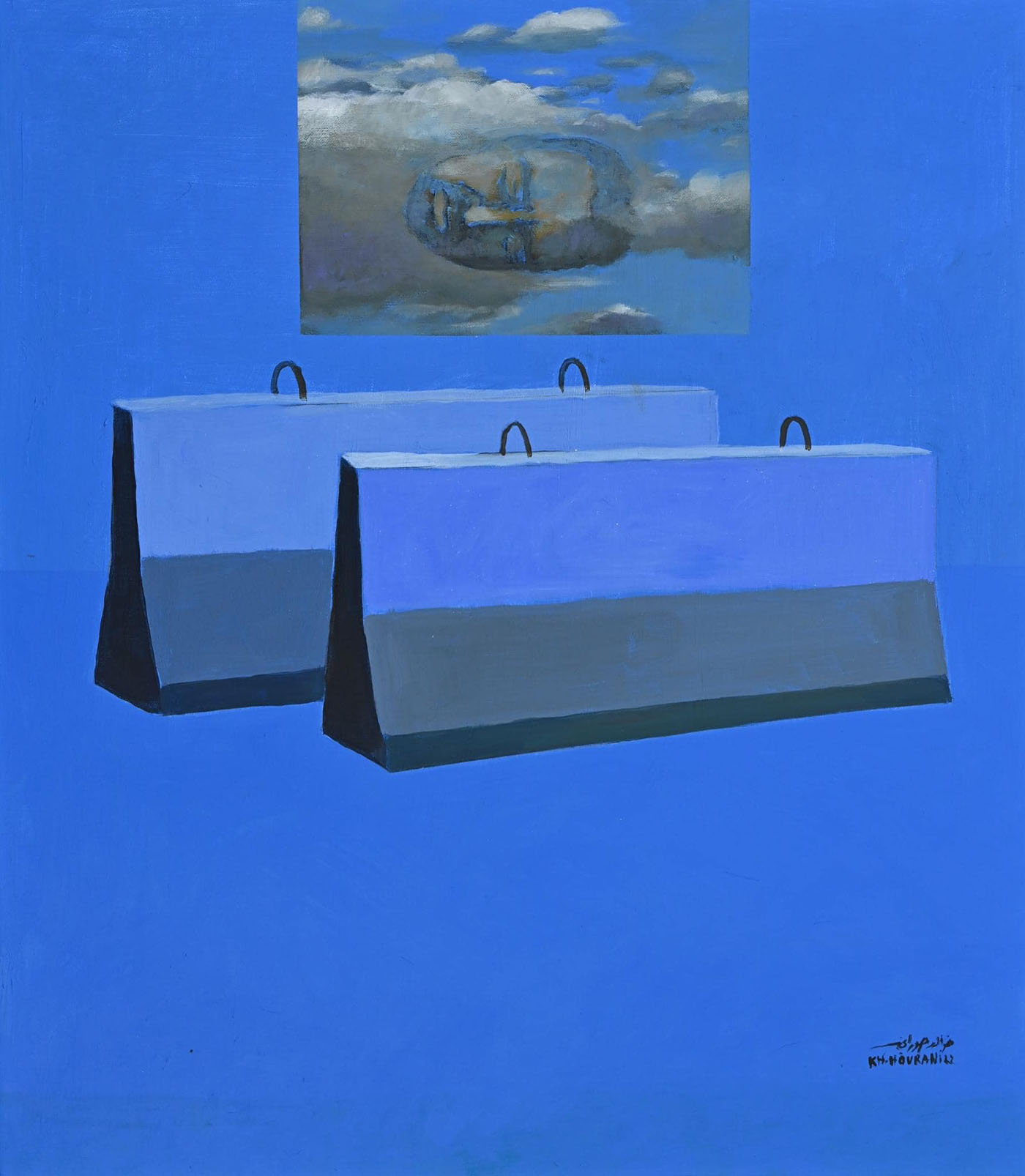
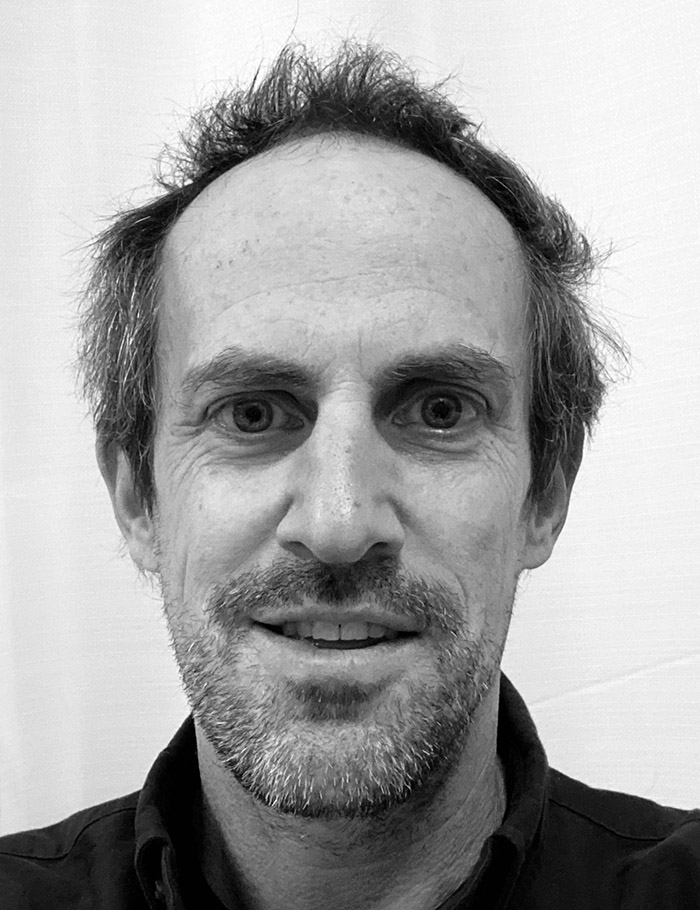




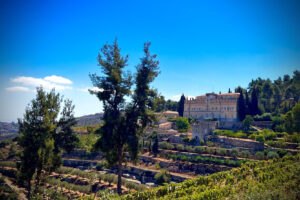


























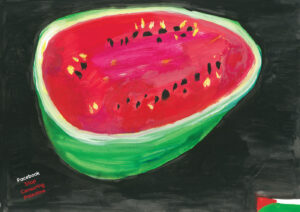








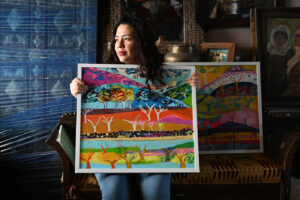


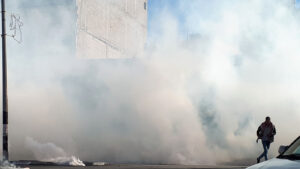

























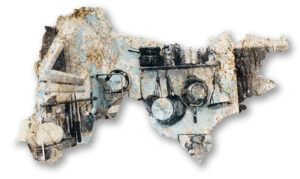



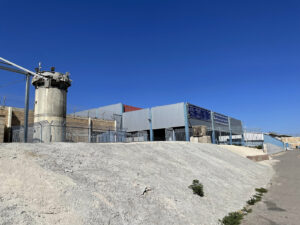




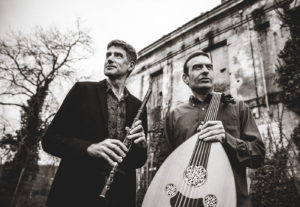

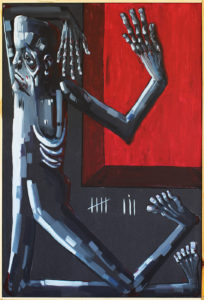

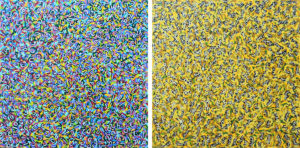



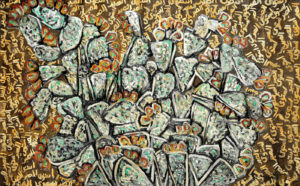
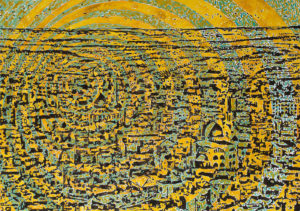





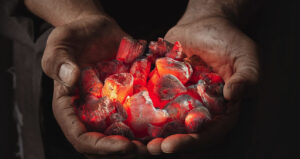











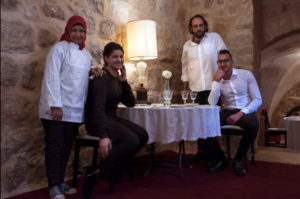



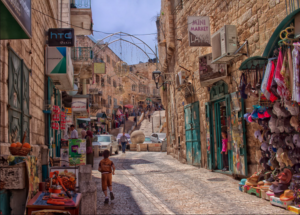




“Résurgence du passé”, la traduction française de “Describing the Past”, traduit de l’arabe par Franck Bouko, sera publié aux éditions M.E.O. (Bruxelles) le 5 décembre 2024.